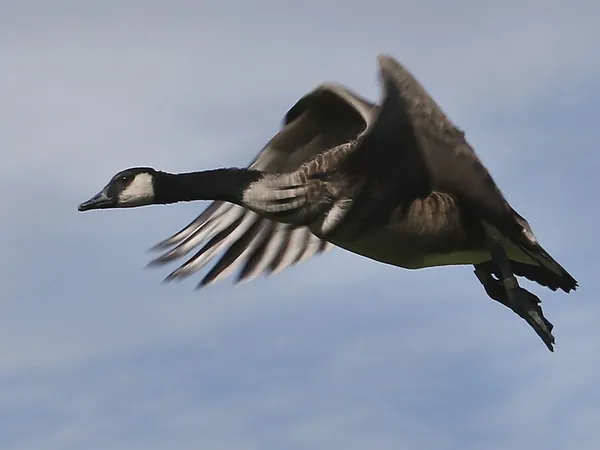
Spring Migration Sparks Bird Flu Alarm: What You Need to Know!
2025-04-18
Author: Emily
Migration Season Raises Red Flags
As the vibrant colors of spring herald the return of thousands of birds to northern Ontario, a chilling warning about avian influenza is echoing across the region.
Stay Vigilant: Expert Advice for Hunters
Lawrence Martin, director of the lands and resources department at Mushkegowuk Council, is calling for hunters to remain alert and take essential precautions while hunting geese and ducks this season.
Growing up near Moose Factory, Martin has witnessed firsthand how bird populations experience cycles of disease when their numbers soar. "Every time there’s a huge population of ducks, some display symptoms of illness," he noted. This year's strains of avian influenza, particularly the highly pathogenic H5N1, are raising alarms due to their impact on domestic poultry, leading to significant disruptions in the industry.
Beware the Sick Bird
Martin emphasizes that hunters should be on the lookout for signs of sick birds. "If you notice a bird lacking energy or behaving oddly, pay attention. Healthy birds typically keep their distance, while sick ones might approach more easily," he advised. He cautions that solitary or wounded geese may indicate underlying problems.
Safety Precautions: Guidelines to Follow
The Mushkegowuk Council has issued critical guidelines to mitigate exposure to bird flu, urging hunters to: 1. Avoid areas with reported outbreaks or dead birds. 2. Refrain from handling or consuming sick birds. 3. Use gloves when dealing with birds and minimize contact with bodily fluids. 4. Wash hands thoroughly after handling birds or use sanitizer with at least 60% alcohol if soap is unavailable. 5. Keep pets away from potentially infected birds.
Ongoing Monitoring and Reporting
The Ontario Ministry of Natural Resources and Forestry (MNRF) is closely monitoring the situation. MNR spokesperson Mike Fenn has pointed out that cases of highly pathogenic avian influenza have been detected across Ontario and will likely continue to appear during migration seasons. "We need to be cautious, especially with millions of birds migrating through the area," shared Martin.
Your Responsibility: Report Suspicious Activity
Residents are encouraged to report any suspicious cases of avian influenza to the Canadian Wildlife Health Cooperative at 1-866-673-4781. As hunting season kicks off alongside the migration, Martin’s message rings clear: "Be careful out there. Take the necessary precautions—for your food safety, and your health!"









 Brasil (PT)
Brasil (PT)
 Canada (EN)
Canada (EN)
 Chile (ES)
Chile (ES)
 Česko (CS)
Česko (CS)
 대한민국 (KO)
대한민국 (KO)
 España (ES)
España (ES)
 France (FR)
France (FR)
 Hong Kong (EN)
Hong Kong (EN)
 Italia (IT)
Italia (IT)
 日本 (JA)
日本 (JA)
 Magyarország (HU)
Magyarország (HU)
 Norge (NO)
Norge (NO)
 Polska (PL)
Polska (PL)
 Schweiz (DE)
Schweiz (DE)
 Singapore (EN)
Singapore (EN)
 Sverige (SV)
Sverige (SV)
 Suomi (FI)
Suomi (FI)
 Türkiye (TR)
Türkiye (TR)
 الإمارات العربية المتحدة (AR)
الإمارات العربية المتحدة (AR)